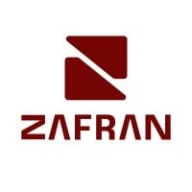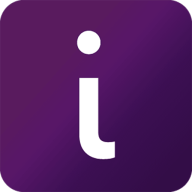


Acunetix and Tenable Nessus both offer robust solutions in the network security category. Acunetix shines in web application security with an easy-to-use interface, while Tenable Nessus has the upper hand in providing extensive vulnerability coverage and remediation across platforms.
Features: Acunetix features an Interactive Application Security Testing module, exceptional reporting capabilities, and a web-based interface that simplifies scheduling and managing scans. Tenable Nessus provides a comprehensive vulnerability database, strong network and local testing capabilities, and advanced vulnerability prioritization features.
Room for Improvement: Acunetix could enhance its handling of false positives, improve mobile application security, and offer a more flexible licensing model. Tenable Nessus could work on streamlining cloud transition, reducing false positives, and expanding its mobile support and user interface.
Ease of Deployment and Customer Service: Both tools offer on-premises, hybrid, and cloud deployment options. Acunetix's customer service is acknowledged for its responsiveness but could be faster. Tenable Nessus uses a ticket system, averaging a day for responses, showing potential for improvement in response times.
Pricing and ROI: Acunetix has seen significant price increases, matching market standards, but its rising costs have led to value concerns. Despite this, it still shows a good return on investment in security improvement. Tenable Nessus is considered more competitively priced with flexible options offering good value for money, and it demonstrates positive ROI albeit sometimes difficult to quantify.
| Product | Market Share (%) |
|---|---|
| Tenable Nessus | 7.3% |
| Zafran Security | 1.0% |
| Acunetix | 1.2% |
| Other | 90.5% |



| Company Size | Count |
|---|---|
| Small Business | 15 |
| Midsize Enterprise | 5 |
| Large Enterprise | 14 |
| Company Size | Count |
|---|---|
| Small Business | 39 |
| Midsize Enterprise | 19 |
| Large Enterprise | 35 |
Zafran Security integrates with existing security tools to identify and mitigate vulnerabilities effectively, proving that most critical vulnerabilities are not exploitable, optimizing threat management.
Zafran Security introduces an innovative operating model for managing security threats and vulnerabilities. By leveraging the threat exposure management platform, it pinpoints and prioritizes exploitable vulnerabilities, reducing risk through immediate remediation. This platform enhances your hybrid cloud security by normalizing vulnerability signals and integrating specific IT context data, such as CVE runtime presence and internet asset reachability, into its analysis. No longer reliant on patch windows, Zafran Security allows you to manage risks actively.
What are the key features of Zafran Security?
What benefits can users expect from Zafran Security?
In industries where security is paramount, such as finance and healthcare, Zafran Security provides invaluable protection by ensuring that only exploitable vulnerabilities are addressed. It allows entities to maintain robust security measures while allocating resources efficiently, fitting seamlessly into existing security strategies.
Acunetix Web Vulnerability Scanner is an automated web application security testing tool that audits your web applications by checking for vulnerabilities like SQL Injection, Cross site scripting, and other exploitable vulnerabilities.
Tenable Nessus provides an efficient vulnerability management system with swift deployment and comprehensive scanning capabilities, making it an ideal choice for organizations seeking to enhance their security posture through effective threat detection and mitigation strategies.
Renowned for its top-tier vulnerability detection, Tenable Nessus offers a robust platform that integrates effortlessly across systems, enhancing threat management through automation, real-time monitoring, and customizable scanning options. Its broad asset coverage, including network devices and applications, coupled with ease of deployment, positions it as a go-to option for risk assessment and compliance. Organizations value its extensive reporting features and database, although they suggest enhancements in reporting formats and false positive detection. A more intuitive interface, improved cloud support, and competitive pricing models are sought after to cater to evolving enterprise needs.
What are the key features of Tenable Nessus?In industries such as finance, healthcare, and tech, Tenable Nessus is implemented for scanning internal and external networks, identifying risks, and ensuring data protection compliance. Organizations conduct regular scans to detect security vulnerabilities in servers and databases, leveraging its capabilities to strengthen their security frameworks while managing cloud infrastructures and enterprise networks efficiently.
We monitor all Vulnerability Management reviews to prevent fraudulent reviews and keep review quality high. We do not post reviews by company employees or direct competitors. We validate each review for authenticity via cross-reference with LinkedIn, and personal follow-up with the reviewer when necessary.